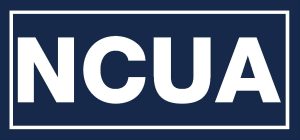Home buyers have several financing options to choose from, and two of the most common are conventional loans and FHA loans. If you’re thinking about buying a home, it’s important to understand the differences between the two loans so you can choose the best mortgage for your needs.
How Do Conventional Loans Work?
“Conventional loans” refer to any loans that the government does not back. Banks, credit unions, mortgage companies, and other private lenders offer them.
Conventional loans usually have fixed interest rates. You lock in the rate before closing and make fixed monthly payments until you repay it. Your mortgage officer can assist you with deciding when the best time to lock your rate is.
With a fixed interest rate, once locked, you don’t have to worry about rates increasing in the future. It can also help with budgeting. You can easily estimate your monthly payments before applying by entering your loan amount, the current interest rate, down payment, and other information in a mortgage payment calculator.
A down payment will be required to qualify for a conventional loan, and the amount will depend on your lender and credit score. If your down payment is less than 20%, you’ll be required to have private mortgage insurance (PMI). The cost of PMI varies but can be anywhere from 0.2% to 2% of the loan amount annually. The good news is that PMI will automatically end once your loan has been paid down. For most owner-occupied properties, PMI terminates once your balance falls below 78% of the lesser of the original purchase price or appraised value. If you’ve improved your home, paid down your loan balance, or seen property values appreciate, you may request to have your PMI waived sooner.
Conventional Loan Eligibility Criteria
When considering you for a conventional mortgage loan, your lender will evaluate your current financial situation to make sure you can make the monthly payments. We will also check your credit score. Although each lender has its own criteria for evaluating credit scores, applicants with higher scores usually receive lower interest rates and have lower PMI rates.
Your lender will also make sure you don’t have too much debt. A high level of debt could indicate that you’ll miss payments or default on one or more loans in the future.
Lenders use a simple metric known as the debt-to-income (DTI) ratio to evaluate your current debt level. As the name implies, it’s a comparison of how much you earn and your monthly debt payments. Lenders always express the DTI ratio as a percentage and prefer to see ratios of 43% or less for mortgages.
How Do FHA Loans Work?
Banks, credit unions, and other lenders offer FHA loans, with backing from the Federal Housing Administration. These loans are not need-based and they don’t have any specific income requirements.
The government backs them, so lenders find them less risky and easier to qualify for than conventional loans. This makes them attractive financing options for first-time home buyers.
A popular benefit of FHA loans is that you only need to make a 3.5% down payment if your credit score is at least 580. And your down payment can even be a gift from an eligible family member.FHA sometimes allows a higher DTI, up to 57%, although they decide this case by case. Additionally, FHA has less stringent seasoning requirements if you had a prior serious credit event like bankruptcy, foreclosure, or short sale.
It’s important to point out that although you can qualify for an FHA loan with a low credit score, you’ll have to pay a higher interest rate than you would if you had a higher score.
If you buy a home with an FHA loan, you’ll also be required to purchase FHA mortgage insurance premium (MIP). This protects the lender if you default on the loan. You’ll be required to pay two MIP premiums. You can pay the first upfront premium, currently 1.75% of the loan amount, either upfront or by financing and adding it to your base loan amount at closing. You’ll also have to pay a premium each year that you’re repaying the loan. The annual premium will depend on your loan to value, loan amount and loan term. The annual MIP for a loan to value greater than 95% with a loan amount of $625,500 or less and a term over 15 years is .85% annually.
FHA Loan Eligibility Criteria
To qualify for an FHA loan, borrowers must meet certain criteria. The requirements ensure that you can repay the money you borrow. They are:
- Have lawful US residency
- Have a Social Security number
- Have a steady employment history
- Must not have a foreclosure within the past three years
- Down payment of at least 3.5% with a credit score of 580
- Must not have a bankruptcy within the previous two years
- Be old enough to sign for a mortgage in the state you live in
- An FHA-approved appraiser must appraise the property and ensure it meets certain standards.
How Are the Two Loans Similar and Different?
Conventional loans and FHA loans are similar in several ways. Banks and credit unions issue both, offer fixed interest rates on both, and require fixed monthly payments to repay both.
The FHA designed loans primarily for individuals with low to moderate incomes, fair to average credit scores, and limited savings, which is the primary difference between the two loans. Conventional loans, on the other hand, are best for those with good credit scores and larger down payments.
An important difference to consider is the mortgage insurance requirements. With an FHA loan, you must pay for mortgage insurance for as long as you have the loan. The total you’ll have to pay for this over the years could be significant.
If you have at least 20% equity in your home, a conventional loan does not require you to have private mortgage insurance (PMI). Not having to carry PMI, or being able to cancel it once eligible, could result in significant savings.
Home Loans With TEG Federal Credit Union
Applying for a mortgage is an exciting time in your life. You get to put down roots somewhere, have an asset that can increase in value over time, and, most importantly, have a place to call home.
If you’re a first-time home buyer, TEG FCU offers first-time home buyer loans with low rates, flexible terms, and low closing costs. Additionally, one of our mortgage experts can connect you with special programs to help you buy your first home.
Click on the following link to learn more about our first-time home buyer loans.
TEG FCU also offers conventional mortgages with great rates and low closing costs. Our loans also have fewer fees than other lenders. We don’t charge application, origination, processing, or underwriting fees.
Click on the following link to visit our Mortgage Center to learn more about our home financing options.













